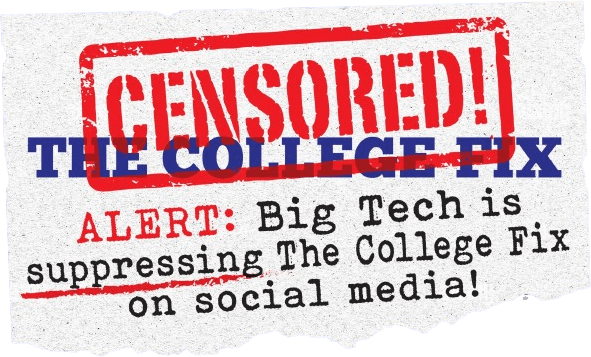Stanford University scholars recently recommitted themselves to the principles of free speech and freedom of expression in a new statement that updates, reaffirms and complements a Statement on Academic Freedom first passed 50 years ago, in 1974, according to the Stanford Report.
The move comes thanks in part to the work of an Ad Hoc Committee on University Speech, formed last year to address several free speech and academic freedom controversies at the school, including a “Protected Identity Harm” reporting system deemed Orwellian by many observers and a 13-page “Elimination of Harmful Language Initiative” discouraging the use of more than 125 mostly innocuous words, including “American.”
In 2022, longtime Stanford Professor of Medicine Jay Bhattacharya declared “academic freedom is dead” in retelling how his institution systematically abandoned him for his contrarian views on COVID. The elite institution also made headlines after a mob of students, aided by a DEI dean at the time, shouted down a federal judge during a guest lecture in 2023. Most recently, the school has been plagued with accusations of rampant antisemitism.
The school continues to be embroiled in controversies. For example, more than one third of Stanford University students say using physical violence to stop a speech is acceptable in at least some circumstances, according to a survey released earlier this year.
The Faculty Senate, after much debate, approved last week a statement that aims to address some of those problems.
“The freedom to explore and present new, unconventional, and even unpopular ideas is essential to the academic mission of the university; therefore, Stanford shall promote the widest possible freedom of expression, consistent with the university’s legal and moral obligations to prevent harassment and discrimination. Accordingly, university policies must not censor individuals’ speech based on the content of what is expressed, except in narrow circumstances,” it reads in part.
“At the same time, Stanford’s educational role as well as its academic and legal obligations differ across locations and contexts on campus, such as spaces open to all community members, classrooms, and dormitories. Community members also have varying privileges and responsibilities in different contexts,” it adds.
“Likewise, legal rights and obligations pertain in different ways to community members depending on whether they are acting as students, teachers, staff, or faculty members. The principles of freedom of speech and expression will be understood in light of these variations across contexts and roles. The campus disruption policy furnishes an example of how some of these distinctions may be drawn.”
The free speech statement is non-binding, as scholars had talked it down from a policy, according to the Stanford Report.
The Faculty Senate also approved an Institutional Statements Policy, “which calls for institutional restraint in making statements and aims to prevent the establishment of institutional orthodoxy that might chill dissent,” the Stanford Report added.
The policy, which applies to leadership, vice provosts, and deans, among others, states that when “speaking for the institution, Stanford University leaders and administrators should not express an opinion on political and social controversies, unless these matters directly affect the mission of the university or implicate its legal obligations.”
MORE: Embattled Stanford Professor of Medicine Jay Bhattacharya: ‘Academic freedom is dead’


